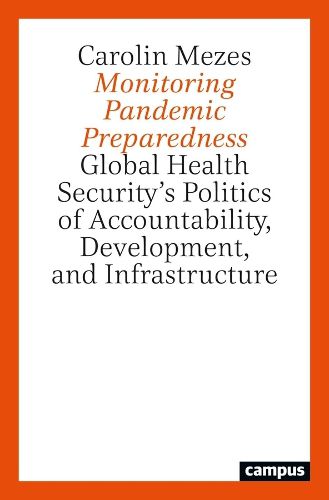Readings Newsletter
Become a Readings Member to make your shopping experience even easier.
Sign in or sign up for free!
You’re not far away from qualifying for FREE standard shipping within Australia
You’ve qualified for FREE standard shipping within Australia
The cart is loading…






How well are countries prepared for the next pandemic? And how to measure and evaluate pandemic preparedness?
In this book, Carolin Mezes examines how the practice of pandemic preparedness monitoring has become an important feature of global health security governance-and how the COVID-19 pandemic has revealed its failure. By way of document analysis and an ethnographic case study of the Joint External Evaluations, her study considers the well-rehearsed critique that preparedness monitoring cannot predict pandemic response performance and appears as a hollow paperwork exercise of box-ticking. An analysis of the media-technologies of preparedness monitoring gives nuance to these critiques and allows us to understand how preparedness monitoring gets caught up in the (contradictive) goals of objective knowledge production, soft-law accountability, and infrastructural development. Considering the power relations of global health, her research scrutinizes the infrastructural politics of preparedness monitoring and the modernism inherent in this developmental effort.
$9.00 standard shipping within Australia
FREE standard shipping within Australia for orders over $100.00
Express & International shipping calculated at checkout
How well are countries prepared for the next pandemic? And how to measure and evaluate pandemic preparedness?
In this book, Carolin Mezes examines how the practice of pandemic preparedness monitoring has become an important feature of global health security governance-and how the COVID-19 pandemic has revealed its failure. By way of document analysis and an ethnographic case study of the Joint External Evaluations, her study considers the well-rehearsed critique that preparedness monitoring cannot predict pandemic response performance and appears as a hollow paperwork exercise of box-ticking. An analysis of the media-technologies of preparedness monitoring gives nuance to these critiques and allows us to understand how preparedness monitoring gets caught up in the (contradictive) goals of objective knowledge production, soft-law accountability, and infrastructural development. Considering the power relations of global health, her research scrutinizes the infrastructural politics of preparedness monitoring and the modernism inherent in this developmental effort.